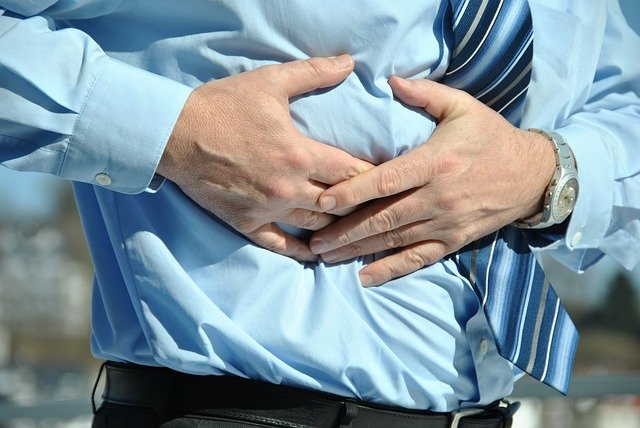If you suffer from digestive conditions like celiac disease or IBS, there is a high probability that your dietitian or nutritionist has already spoken about the leaky gut syndrome and suggested medical supplements like Ultra GI Replenish to you.
If you still are not aware of leaky gut, let’s first understand what it is.
What is Leaky Gut?
Leaky gut is a condition caused by enhanced intestinal permeability. It implies the passage of substances across the intestinal walls to enter the bloodstream.
The digestive system consists of many organs that collectively break the food down, absorb water and nutrients and do away with the waste products. Then the intestinal lining acts as the barrier between the bloodstream and the guts. This prevents harmful substances from entering the body.
With conditions such as Leaky Guts, gaps in the intestinal lining wall are created. These allow the bacteria, food particles, and waste products to seep into the bloodstream directly.
Symptoms of Leaky Guts
The symptoms of leaky guts can vary based on the underlying cause. For example –
- IBS can cause bloating, abdominal pain, diarrhea or constipation, cramping, excess gas, and mucus in stools.
- IBD can give rise to severe diarrhea, abdominal pain, fatigue, weight loss, fever, fatigue, and bloody stools.
- Celiac disease can cause diarrhea, abdominal pain, constipation, nausea, fatigue, gas and bloating, vomiting, and weight loss.
There are no FDA approved treatments that are currently available for leaky guts.
However, eating foods that influence the intestinal inflammation and bacteria can assist in alleviating the symptoms.
Beneficial Foods to Heal Leaky Guts
You should always focus on clean ingredients with easily digestible foods that are low in sugar and fructose and devoid of any substance like pesticide and sugar alcohol, which are hard on the pocket.
Here are the basic components that you should take.
- Low-glycaemic & High-fiber Carbs – These include non-starchy, cruciferous, and leafy vegetables like broccoli, arugula, brussels sprouts, cauliflowers, cabbages, and collard greens. These are great sources of prebiotic fibers. The healthy probiotic bacteria feed on these in the guts that are essential to gut health.
- Healthy Fats – Go for quality sources of fats like seeds, nuts, olive oil, seeds, and coconut oils. Skip the ultra-refined vegetable oils, like soybean and corn, that can promote inflammation.
- Hypoallergenic Proteins – These include rice, pea, chia, and hemp. People who have leaky guts are usually more prone to food allergies and sensitivities. This means that it is always great to practice hypoallergenic whenever possible.
- Slow Carbs – These include starchy veggies like butternuts and sweet potatoes and low-sugar and fiber-rich fruits like berries and apples. They are fiber-rich, minimally processed grains like the rolled oats instead of the refined grains and bread slices. These are less likely to contain the anti-nutrients like phytates and lectins that aggravate the guts.
- Lean and Clean Proteins – The wild-caught fish, grass-fed meats, and free-range poultry contain healthier concentrations of anti-inflammatory omega 3 fats than conventional counterparts.
- Fermented Foods – The foods like unpasteurized sauerkraut, kimchi, and Lacto-fermented pickles are rich sources of probiotics. This type of probiotics helps to keep the immunity strong. It protects the gut lining and does away with pathogens.
- Collagen or Bone Broth – The bone broth’s gelatin shields and restores the digestive tract’s lining and assists in nutrient digestion. In fact, research suggests that collagen peptides can have a similar perk. Bone broth is rich in amino acids and glutamine, a preferred energy source for the small bowel cells and other immune cells. This reduces intestinal permeability.
Foods to Avoid
Some foods can cause body inflammation, and doing away with certain foods can enhance gut health. It promotes the growth of the unhealthy bacteria guts linked to many chronic ailments.
The following foods can harm the healthy gut bacteria and are believed to trigger digestive symptoms like diarrhea, constipation, and bloating.
- Wheat products: wheat flour, pasta, bread, cereals, couscous, etc.
- Processed meats: deli meats, cold cuts, hot dogs, bacon, etc.
- Gluten-containing grains: rye, barley, oats, bulgur, triticale, and seitan
- Dairy products: milk, ice cream, and cheeses
- Snack foods: muesli bars, crackers, pretzels, popcorn, etc.
- Baked goods: muffins, cakes, cookies, pastries, pies, and pizza
- Junk food: fast foods, sugary cereals, potato chips, candy bars, etc.
- Refined oils: sunflower, canola, teriyaki, soybean, and safflower oils
- Sauces: salad dressings, soy and hoisin sauce
- Artificial sweeteners: sucralose, aspartame, and saccharin
- Beverages: carbonated beverages, alcohol, and other sugary drinks
Now that you know what you should have and what to avoid, stick to a healthy diet chart. Apart from these, your doctor can also advise effective supplements like Ultra GI Replenish. Changing your diet and eliminating toxic food can help to heal Leaky Guts massively. Such a practice rejuvenates the intestinal wall and assists in restoring your health.












